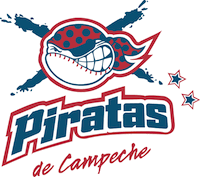

HOME
HOCKEY
OTHER
RULES
RANKINGS
HISTORY
TEAMS
Teams with asterisks are not yet posted
Aberdeen IronBirds
Acereros del Norte
Águila de Veracruz
Aigles de Trois-Rivières
Akron RubberDucks
Albuquerque Isotopes
Algodoneros de Unión Laguna
Altoona Curve
Amarillo Sod Poodles
Arkansas Travelers
Asheville Tourists
Augusta GreenJackets
Beloit Sky Carp
Billings Mustangs
Biloxi Shuckers
Binghamton Rumble Ponies
Birmingham Barons
Boise Hawks
Bowling Green Hot Rods
Bradenton Marauders
Bravos de León
Brooklyn Cyclones
Buffalo Bisons
Caliente de Durango
Capitales de Quebec
Carolina Mudcats
Cedar Rapids Kernels
Charleston Dirty Birds
Charleston RiverDogs
Charlotte Knights
Charros de Jalisco
Chattanooga Lookouts
Chesapeake Baysox
Chicago Dogs
Clearwater Threshers
Cleburne Railroaders
Columbia Fireflies
Columbus Clippers
Columbus Clingstones
Conspiradores de Querétaro
Corpus Christi Hooks
Dayton Dragons
Daytona Tortugas
Delmarva Shorebirds
Diablos Rojos del México
Dorados de Chihuahua
Dunedin Blue Jays
Durham Bulls
El Paso Chihuahuas
Erie SeaWolves
Eugene Emeralds
Evansville Otters
Everett AquaSox
Fargo-Moorhead RedHawks
Fayetteville Woodpeckers
Florence Y'Alls
Fort Myers Mighty Mussels
Fort Wayne TinCaps
Fredericksburg Nationals
Fresno Grizzlies
Frisco RoughRiders
Gary SouthShore RailCats
Gastonia Ghost Peppers
Gateway Grizzlies
Glacier Range Riders
Grand Junction Jackalopes
Great Falls Voyagers
Great Lakes Loons
Greensboro Grasshoppers
Greenville Drive
Guerreros de Oaxaca
Gwinnett Stripers
Hagerstown Flying Boxcars
Harrisburg Senators
Hartford Yard Goats
Hickory Crawdads
High Point Rockers
Hillsboro Hops
Hub City Spartanburgers
Hudson Valley Renegades
Idaho Falls Chukars
Indianapolis Indians
Inland Empire 66ers of San
Bernardino
Iowa Cubs
Jacksonville Jumbo Shrimp
Jersey Shore BlueClaws
Joliet Slammers
Jupiter Hammerheads
Kane County Cougars
Kannapolis Cannon Ballers
Kansas City Monarchs
Knoxville Smokies
Lake County Captains
Lake Country DockHounds
Lake Elsinore Storm
Lake Erie Crushers
Lakeland Flying Tigers
Lancaster Stormers
Lansing Lugnuts
Las Vegas Aviators
Lehigh Valley IronPigs
Leones de Yucatán
Lexington Legends
Lincoln Saltdogs
Long Island Ducks
Louisville Bats
Lynchburg Hillcats
Memphis Redbirds
Midland RockHounds
Milwaukee Milkmen
Mississippi Braves
Missoula Paddleheads
Modesto Nuts
Montgomery Biscuits
Myrtle Beach Pelicans
Nashville Sounds
New England Knockouts
New Hampshire Fisher Cats
New Jersey Jackals
New York Boulders
Norfolk Tides
Northern Colorado Owlz
Northwest Arkansas Naturals
Oakland Ballers
Ogden Raptors
Oklahoma City Comets
Olmecas de Tabasco
Omaha Storm Chasers
Ottawa Titans
Palm Beach Cardinals
Pensacola Blue Wahoos
Peoria Chiefs
Pericos de Puebla
Piratas de Campeche
Portland Sea Dogs
Quad City River Bandits
Rancho Cucamonga Quakes
Reading Fightin Phils
Reno Aces
Richmond Flying Squirrels
Rieleros de Aguascalientes
Rochester Red Wings
Rocket City Trash Pandas
Rocky Mountain Vibes
Rome Emperors
Round Rock Express
Sacramento River Cats
Salem Red Sox
Salt Lake Bees
San Antonio Missions
San Jose Giants
Saraperos de Saltillo
Schaumburg Boomers
Scranton/Wilkes-Barre RailRiders
Sioux City Explorers
Sioux Falls Canaries
Somerset Patriots
South Bend Cubs
Southern Maryland Blue Crabs
Spokane Indians
Springfield Cardinals
St. Lucie Mets
St. Paul Saints
Staten Island FerryHawks
Stockton Ports
Sugar Land Skeeters
Sultanes de Monterrey
Sussex County Miners
Syracuse Mets
Tacoma Rainiers
Tampa Tarpons
Tecolotes de los Dos Laredos
Tigres de Quintana Roo
Toledo Mud Hens
Toros de Tijuana
Tri-City Dust Devils
Tri-City ValleyCats
Vancouver Canadians
Visalia Rawhide
Washington Wild Things
West Michigan Whitecaps
Wichita Wind Surge
Wilmington Blue Rocks
Windy City Thunderbolts
Winnipeg Goldeyes
Winston-Salem Dash
Wisconsin Timber Rattlers
Worcester Red Sox
Yolo High Wheelers
York Revolution

| Piratas de Campeche | 43 |
Notice: All logos on this page are included within the parameters of 17 U.S.C. § 107, which states that the reproduction of a copyrighted work for purposes of criticism and/or comment is not an infringement of copyright. No challenge to the copyrights of these logos is intended by their inclusion here.
Posted 2015 June 23
I've long known that pirates could be bold little bastards when they got it into their head to be, but I never realized quite the extent of it until I started reading up on the history of Campeche for this review.
Okay, before I go any further, I know it may surprise some of you to learn I actually bother to do research of towns for these reviews. I don't always. It depends on how much I have to work with from the logo and a quick perusal of the Wikipedia page for the team. The logo, as you can see, only gives me so much. It's a baseball dressed up like the head of a pirate, complete with eye-patch and bared teeth. Okay, fine, whatever.
As for the Wikipedia page, it's pretty hopeless. To be totally honest, I'd appreciate it if any fluent-in-Spanish readers I have would do something to fix that page. It's pretty obvious that the page is nothing more than the Spanish Wikipedia page translated into English using Google Translate or some similar(ly flawed) translation website. The following is one of the sentences on the page: "Campeche has won two championships during its history, both times having to face Francisco 'Tiny' Estrada, and has been precisely his number, 25, the only hearty withdrawn by the ninth, won the first championship season 1983 and the second in the 2004 season, highlighting the offensive Poderozo reinforcements Willis Otañez size and Emil Brown among others, as well as reliable serpentine body headed by the pitching triple champion Campos Francisco 'Pancho Punch' and the handover of Isidro Márquez." I'd like to be able to clean that up, but first I'd have to know what any of that means, and I can't figure out it. In any case, because the Wikipedia page was so hopeless, I had to go read about the city to find something to talk about. I'm glad I did, though, because I stumbled upon a nifty little story, and it's even completely relevant to the team because it involves the city of Campeche and pirates. For all I know, it is the origin of the team's name.
These pirates, for the record, were not Spanish. They were English. Technically I suppose I should say they were privateers, because the English governor in the Caribbean knew all these guys and was apparently fine with them as long as they left English towns the hell alone, which as best as I can determine they did. The ringleader of this venture was one Sir Christopher Myngs (yes, he was actually knighted for his pirating ways). He fought for the English as a captain and later admiral in the First Anglo-Dutch War and the Anglo-Spanish War. After the latter ended, the English sent him back to the Carribean to keep attacking Spanish cities; apparently, in those days the fact that the war was over didn't mean you were supposed to stop fighting in it. Myngs gathered some other pirates (he was literally a pirate admiral) and sacked the city of Santiago de Cuba. This was apparently a really big hit in some parts of the Carribean (particularly the parts with English pirates), and all his fans wanted to know when he was going on tour again. Not being one to disappoint his fans, he announced that he would next be attacking the town of Campeche on the coast of the Yucatán Peninsula. Let that just sink in for a second. He announced where he would be attacking next. This is sort of like a bank robber announcing, "I'm going to rob the First National Bank on Third Street next week...bring your friends!" And bring his friends he did. He put together a fleet of fourteen pirate ships, which apparently was the largest such fleet assembled up to that point. Everyone wanted to be part of this. And I do mean everyone; some Dutch and French pirates asked if they could get in on the action. Of course, this being the Seventeenth Century when all of these countries hated each other, you can imagine what Myngs' reply was. It was, "Hell, yeah, come on down!"
So the people in Campeche knew there were pirates coming, and they had already had fortifications designed to repel pirates because they were a coastal city in the Carribean in the Seventeenth Century, and as we all know, the technical term for a coastal city in the Carribean in the Seventeeth Century that didn't have fortifications designed to repel pirates is "ruins". So they trained their cannons on the harbor and waited. They were ready for these bastards to come. And when they saw ships from Myngs' fleet arrive in the harbor, they started firing. No way were these pirates going to make it from the harbor into the city.
And the pirates didn't make it from the harbor to the city. That's because the ships were a decoy. Roughly two-thirds of Myngs forces — about a thousand men — had landed a short distance from the city the night before and traveled overland. Once the city forces were focused on the harbor, Myngs attacked from the other side of the city.
It would be funny (in a grim sort of way) if they had been able to stroll into the city unobstructed because nobody was paying any attention to that side of town. But it wasn't that simple: the people of Campeche weren't that stupid. There were still sentries posted around the city, and once they saw Myngs and his forces coming they sounded the alarm. The militia was outnumbered roughly six to one, but the city walls went all the way around and thus the militia was able to make use of the high ground. They managed to injure Myngs, who was taken back to his ship, but under the command of the Dutch pirate Edward Mansvelt, the remaining pirates were able to kill all but one of the town's officials in the fighting. This last official, wisely, surrendered. The pirates took about 150,000 pieces of eight (which if melted into silver ingots today would net you about about two and a quarter million dollars), and also took about fourteen ships with them when they left.
The raid was so successful that afterwards King Charles had to forbid any similar raids (remember, the English weren't supposed to be fighting the Spanish anymore). This policy stayed in place for roughly twenty years, at which point similar attacks were arranged on the Spanish cities of Veracruz and Cartagena. I'm sure the English used the excuse of "What do you expect? That place is crawling with pirates..."
So not only did this stunt work spectacularly well once, it worked spectacularly well at least three times, and probably more than that. Why didn't I learn about this in history class? If I had I might have actually been able to stay awake in class.
Final Score: 43 points.
Penalties: Equipment, 13 pts; Humanoid, 30 pts.
Bonuses: None.